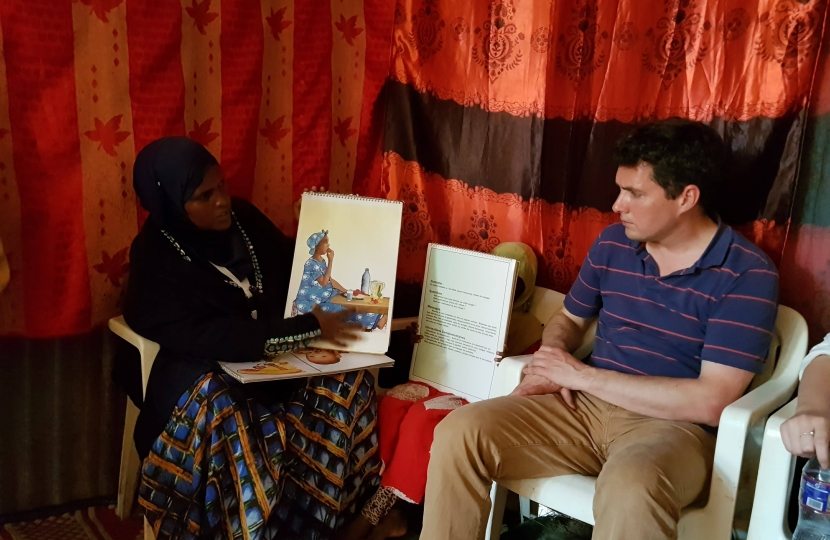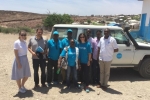
Immunisation for children under the age of one has gone up from 80% to 90% in the last few years in Djibouti City. However, in the districts, where poverty and a lack of understanding about modern medicine can be more pronounced, these same immunisation rates are lower than 75%. To help remedy this, UNICEF has funded the formation and development of community management committees.
We visited one such committee at a learning centre which had been set up in their district. The committee comprises female community elders, who are trusted by expectant mothers. The committee members have been trained to pass on the need to immunise and ensure nourishment for both mother and child. Members have also been trained how to refer reluctant mothers to specialist health treatment where danger signs have been detected.
The reality, in these communities, is that there is still distrust of authority and modern health practices. Local surveys have shown that mothers had not been taking up immunisation due, amongst other things, to the tradition obliging mothers to stay at home for the first forty days after giving birth. By equipping the female elders with the message to break down barriers, and the means to provide basic health checks, the risk of disease and malnutrition are expected to reduce. Not only are the committee members holding their clinics, they are now providing outreach on the doorsteps and seeking to engage fathers in the progress.
A heartening tale where the community are delivering for their own next generation (with the help of UNICEF).



